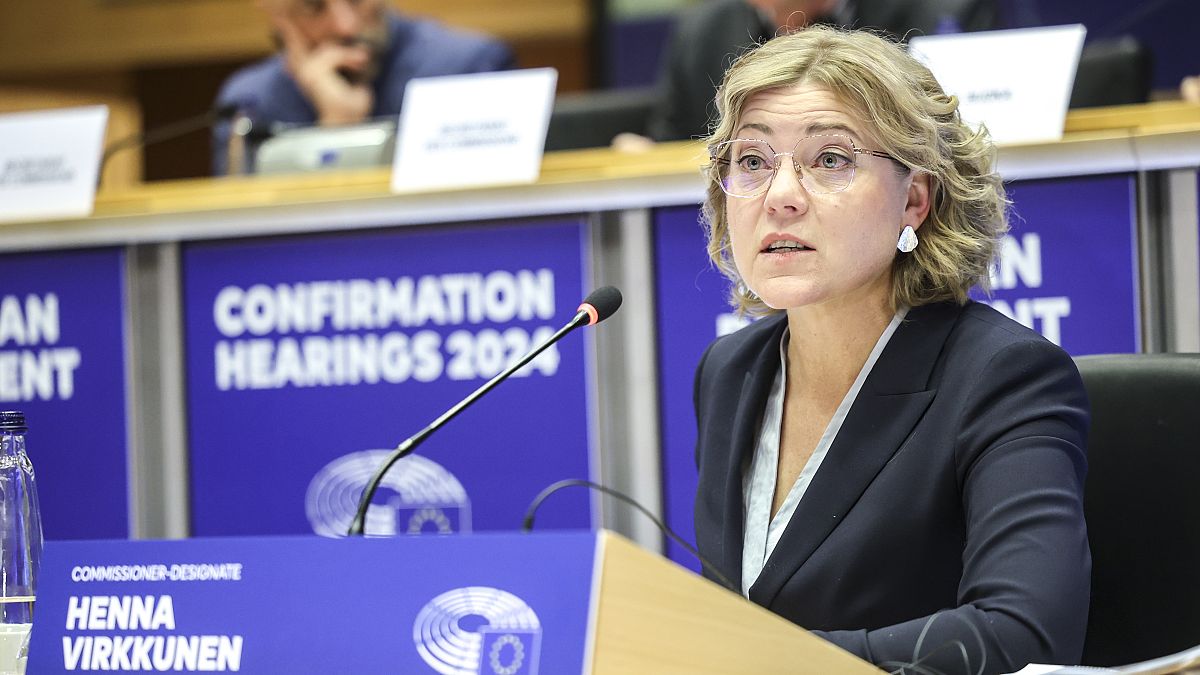New EU tech chief to discuss 5G security measures with governments

The European Commission in 2020 adopted 5G security measures to protect telecom networks, but just a handful of countries have banned the Chinese suppliers.
The incoming European Commissioner for Tech Sovereignty, Security and Democracy is dissatisfied with how much national governments have excluded so-called high-risk telecom infrastructure companies – China’s Huawei and ZTE – from critical infrastructure, Henna Virkkunen told lawmakers during a confirmation hearing in the European Parliament on Tuesday night.
In the three-hour hearing, Finland’s Virkkunen (EPP) – herself an MEP between 2014 and 2024 – said the issue will come up with the planned revision of cybersecurity rules next year.
“I am not satisfied when it comes to the critical infrastructure: the majority of communication in Europe is transmitted through high-risk applications. A few countries have imposed rules on the high risk vendors,” Virkkunen said.
“The member states have not been taking this seriously enough, there will be a revision of the Cyber Security Act next year, but I also want to have discussions with the member states,” she added.
Euronews reported in August that some eleven countries, fewer than half the 27 EU member states, have used legal powers to impose restrictions on telecom suppliers that are considered high-risk, such as Huawei and ZTE, for 5G network infrastructure.
In 2020 the Commission adopted a so-called 5G Cybersecurity Toolbox to protect networks from cyber threats and risks, after which EU member states agreed to apply restrictions for suppliers considered to be high risk.
Besides bans, most EU countries have put in place rules to restrict the providers: 21 have adopted rules and three have legislation pending. This allows national authorities to restrict or prevent suppliers considered as high-risk for 5G networks, when deemed necessary.
Huawei always denied allegations of spying and Chinese state connections.
Virkkunen will also propose a Digital Networks Act, an overhaul of telecom rules to improve investment and connectivity in the first half of 2025.
DSA and Elon Musk
Virkkunen dodged several questions about US Big Tech complying with platform rules. Her predecessor, France’s Thierry Breton, had several disputes with X’s billionaire owner Elon Musk about the company’s policy not being in line with the Digital Services Act (DSA).
When asked how she will ensure that Musk – tipped by US president-elect Donald Trump to lead a newly created Department of Government Efficiency in his administration – will abide by the DSA, she said that every company needs to play by the rules.
“The US is the EU’s most important partner, also in security. I am willing to continue good cooperation,” she said of last week’s US election result.
Lawmakers will now decide whether to confirm Virkkunen and the other five Commission Vice-Presidents. The new college of commissioners is expected to take office on 1 December.
Related
EU denies picking on US tech giants, says US also…
BRUSSELS (Reuters) - Europe's new tech rule aims to keep digital markets
€450M to drive green data infrastructure, the next startup hub,…
This week we tracked more than 70 tech funding deals worth over €1.3 billion, and over 5 exits, M&A transactions, rumours, an
European tech sector poised for stronger 2025, says Monument Group;…
Let’s kick things off with tech! Monument Group’s Zac Williams expects a big spike in European technology deals in 2025, as the region offers more appealing
Women still marginalised in Europe’s Tech Ecosystem
European startups founded or co-founded by women raised €10.2B in 2024 across nearly 2,000 transactions, according to Pitchbook’s latest study. This repr










